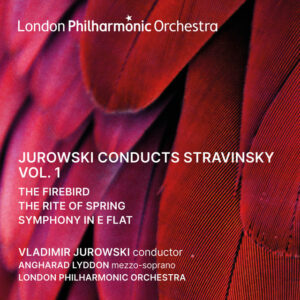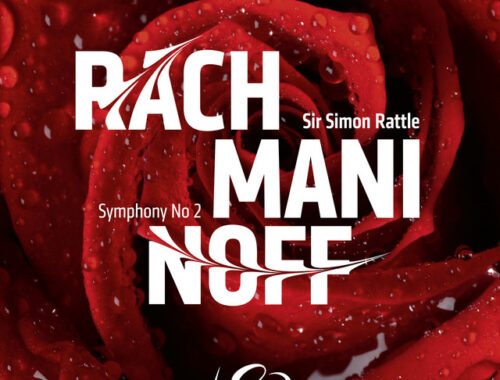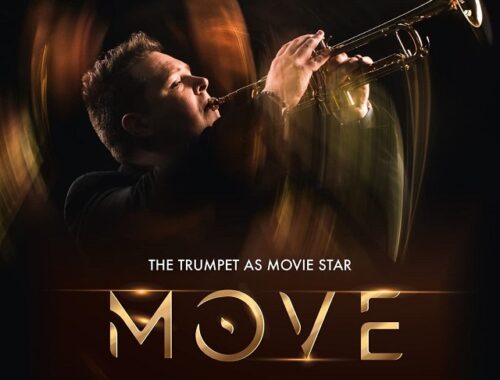GRAMOPHONE Review: Jurowski Conducts Stravinsky Vol 1 – Angharad Lyddon, London Philharmonic Orchestra/Jurowski
 The early evolution of Stravinsky from fledgling to Firebird feels like the most natural thing in the world as one listens to this the first in a three-volume series from Vladimir Jurowski and the London Philharmonic tracing the chronology of his musical journey. It helps, of course, that the instinct and intellect of this most inquisitive and searching of conductors makes all the right connections, pointing up the transformation like it was an inevitability waiting to happen.
The early evolution of Stravinsky from fledgling to Firebird feels like the most natural thing in the world as one listens to this the first in a three-volume series from Vladimir Jurowski and the London Philharmonic tracing the chronology of his musical journey. It helps, of course, that the instinct and intellect of this most inquisitive and searching of conductors makes all the right connections, pointing up the transformation like it was an inevitability waiting to happen.
The E-Flat Symphony (1907) was his first published work and let’s be honest you’d be hard-pushed to hear his voice over that of his most revered elders Rimsky-Korsakov (his teacher) and Glazunov but more especially (in its formal, though quirky, classicism) the great Tchaikovsky. Not that the clumsy, top-heavy, first movement could be said to show his presence, leave alone his influence. The tunes are generous, but the scoring is cumbersome and surely it cannot be possible that he went from this to the transparency and fragrant limpidity of Firebird in a mere three years? You had better believe it.
Indeed, from the first to the second movement of this piece there is a notable transformation – because suddenly in the scherzo he out-Tchaikovskys Tchaikovsky. No doubt accentuated by Jurowski’s brisk and airy delivery – and that of the LPO’s most articulate playing – this is ballet music if ever I heard it. It might have been lifted straight from the pages of The Sleeping Beauty. And is that a Strauss-inspired over-reaching of horns in the big climax of the slow movement? The finale is all Rimsky and the folklorish tone is already pointing the way to the big three ballets.
The three morsels which complete this first disc demonstrate more speedy evolution. The pretty orchestral song The Faun and the Shepherdess is folksong with an exotic air while the Scherzo fantastique could be the elaboration of something the Firebird might have danced to. Gossamer, light-catching scoring. But much more interesting because its motivation comes from a deep and abiding gratitude is his Funeral Song on the death of his great teacher Rimsky-Korsakov. Heartfelt was something that didn’t come naturally to Stravinsky but here he describes a succession of solo instruments filing past Rimsky’s tomb. The depth of feeling is reflected in the originality – the things, you might say, that cannot be taught.
And so to his ‘arrival’ in earnest with the first two big ballets. The key element distinguishing Jurowski’s readings is ‘movement’. His Firebird has fluidity and an innate sense of physicality. There is great suppleness to everything. It dances. There is atmosphere, too, of course, an intoxicating sense of the exotic with sudden muted pianissimi taking the breath away in a less self-conscious way than we experience with Simon Rattle in his recent and undeniably impressive account with the LSO. The ‘Supplications of the Firebird’ is wonderfully curvaceous and, yes, Russian sounding. And as day breaks to another balmy horn solo the succession of ravishing woodwind solos that it ushers in weave yet more magic.
But the biggest revelations – and in marked contrast to Rattle’s rather pedestrian reading with the LSO – come with The Rite of Spring. Some of it might come as a shock, a shock of the new (isn’t that what we are always striving for with this piece?), for it is swifter and more impulsive and even lighter on its feet than many of its rivals. From the germinating introduction the E-flat clarinet is already ringing out like a mating call. But stark inner detail apart (and there is an abundance of it) it is the urgent, sometimes headlong, even reckless, speeds that give the reading its sinewy balletic volatility.
The ‘Dance of the Earth’ powers in with hair-raising abandon – it has to be among the most exciting (and riskiest) on disc – and from the ‘Glorification of the Chosen One’ through to the convulsions of the ‘Sacrificial Dance’ there is a death-defying edge-of-seat primitivism that is so much more than mere virtuosity.
You May Also Like

GRAMOPHONE Review: Rachmaninov Symphony No. 2 – London Symphony Orchestra/Rattle
19/05/2021
GRAMOPHONE Review: Sounds of America – Jon Manasse, Park Avenue Chamber Orchestra/Bernard
20/12/2021

